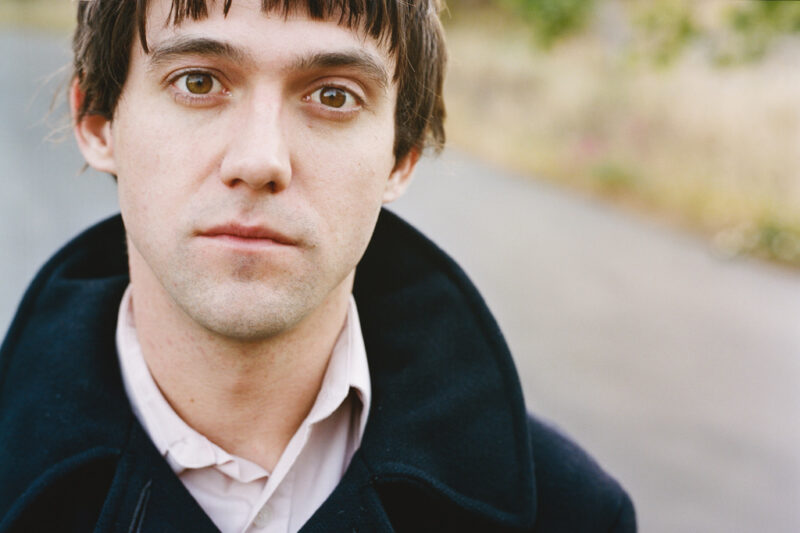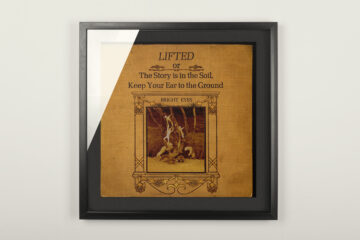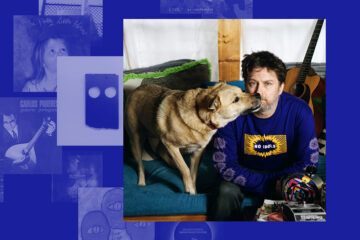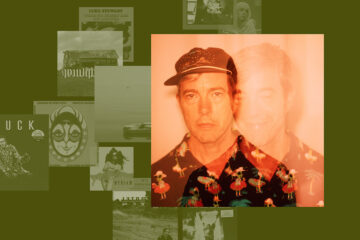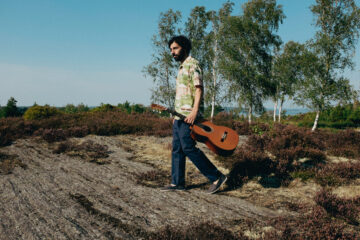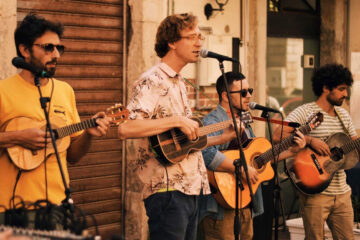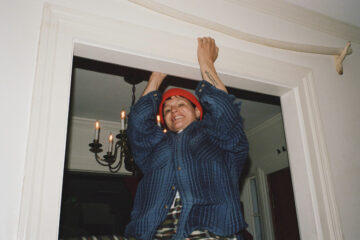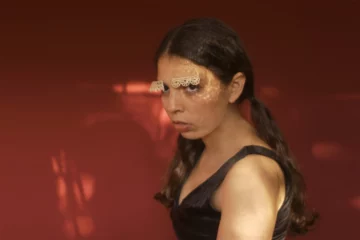After the release of his seventh studio record, Conor Oberst is touring with his band Bright Eyes again. Since the release of his first studio album in 1998, Conor Oberst and his label Saddle Creek, founded by his brother and his producer, left their imprint of an entire generation. The folk-based introverted music of Bright Eyes that is influenced by many different styles from electro to post-punk also stands for the return of authentic lo-fi-productions in the Noughties. Before the release of his latest record, Conor Oberst announced it to be the last Bright Eyes album. We’ve talked to him about the long way from his early basement recordings A Collection of Songs… (1998) to his conceptual work The People’s Key and about the future of his band.
Especially on your earlier records, the way you sang and the way your songs were produced made them sound very intimate. Do you think the songs in your head are the same as the songs we can listen to?
Conor Oberst: Inherently we’re all in the same boat. I find that not just with my music, but also with any art or music that resonates with people. It’s a hard thing to articulate how that happens and I don’t think it happens as successfully with each song or with each production of each song. As a band we don’t really think about it while were making it. We just try to make the music that comes naturally to us or things that excite us in the studio, but it’s definitely a hope of ours that people do feel that kind of connection.
On your records up to »I’m Wide Awake It’s Morning« your shaky voice almost worked as a kind of Cooperate Identity. I think that changed on »Cassadaga« (2007). Were you conscious of that?
Conor Oberst: Yes. And first of all, I never had any type of formal musical training. I just started at a really young age, basically just singing what came naturally. So for the most part I had very little control over my singing in a sense of singing in pitch, hitting on the notes and most of the time I was just screaming and yes, there was a certain of out-of-control-sound to it.
But it was a unique quality of those records…
Conor Oberst: Yes, but the thing you wouldn’t have known as a listener is that that whole time I was trying to be the best singer that I could be and I think if you listen to the progression you can hear that. You can hear me getting a bit more conventional, but in my mind it was like »I just want to be the best singer that I can be so I just hit the notes.« And now, at this point, I’ve been singing for most of my life, well, over 20 years or something like that. So I’m a better singer and have more control of my voice, so if I would get up there and sing in the way I used to sing that would be just as fake. I wouldn’t want to do that and it wouldn’t be authentic anymore. Because I don’t sing like that anymore. The things that sound good to my ears have changed and I like where my voice is at now, because I can do much more with it. To be able to hit the notes I want to hit is fine for me now.
You went a long way from releasing the demo recordings from your basement to the more conceptual production of your latest record. How is your relation to those early demo versions of your songs nowadays?
Conor Oberst: It depends, I still do demo recordings of songs before we record it in the studio. Most of the time is just me on my laptop in my room recording into a little microphone just to have something to show to Mike [Mogis] and Nate [Walcott]. I don’t release that stuff anymore, but sometimes those have a certain magical quality, because they are so new. It’s like I myself don’t even know the song. But it depends. A lot of the time, the process in the studio is also a way to give the song a form so that you can like it.
You’ve said that the People’s Key is going to be the last Bright Eyes record…
Conor Oberst: I think it’s going to be the last one for a while. There’s definitely been many times when I have thought: I’m not going to do this band or I’m not going to do music anymore. There are always periods where you want to get out of these things you’re doing. But the longer I do it, I realize that it’s foolish to say: I’m never going to do something again. So, after this year of touring we will all go our separate ways and do different musical things or different things in general to occupy our lives. But if we all want to do it and make a record and get back together, then that could happen in the future.

